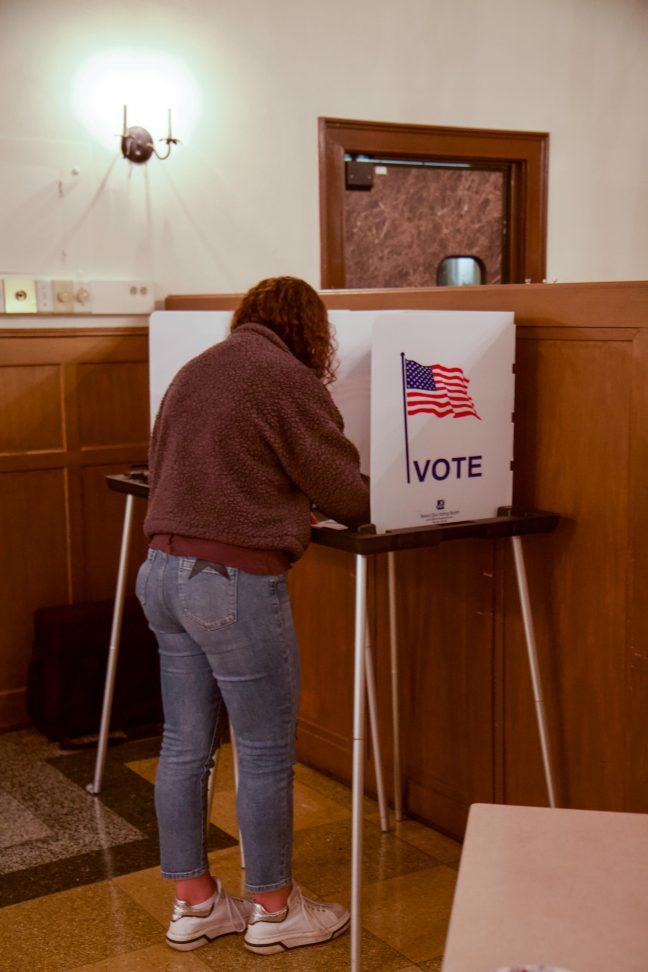Republican lawmakers are currently advancing a proposal for a constitutional amendment that would preserve voter ID laws among other election laws. Since 2011, Wisconsinites have been required to provide photo identification to vote, but Republican legislators are worried the new liberal majority in the Supreme Court will overturn this law.
While Sen. Van Wanggaard (R-Racine) claims that enshrining the law would safeguard the integrity of Wisconsin elections, there is much concern about the true motivation behind voter ID requirements and how they affect elections.
Voter ID laws are reminiscent of the various tactics — from poll taxes to felony disenfranchisement — that have been used to keep minority populations from casting their ballots. The discriminatory nature of the law is concerning to voting rights activists. According to the League of Women’s Voters, the 2013 Supreme Court case Shelby County v. Holder led to over 700 discriminatory voting changes being outlawed. It was after this decision that states began enacting photo ID laws, likely in place of the previous voting laws. In fact, Texas enacted a voter ID law the very night the Supreme Court decision was handed down, blocking nearly 5% of its voters from casting their vote.
Given that 18% of citizens over 65, 16% of Latino voters, 25% of black voters and 15% of low-income voters lack a photo ID, this law clearly has a disproportionate impact on select communities. Rep. Paul Tittl (R-Manitowoc) claims obtaining a voter ID is free and easily accessible. This is far from the truth.
The ACLU states that document fees, travel time and waiting time can amount to a $75 to $175 cost. Additionally, rural and Native American communities often lack the necessary paperwork to receive a valid voter ID due to home births. Access to a government-issued photo ID is also a barrier for college students and disabled or elderly individuals.
While the voter ID law effectively bars marginalized groups from election representation, it fails to achieve its true purpose — preventing election fraud. A study by the Brennan Center for Justice found incidents rates of voter fraud to be between 0.0003 to 0.0025%. Additionally, only 31 of the over 1 billion ballots cast between 2000 and 2014 have been found to be fraudulent. Jamie Lynn Crofts, policy director for Wisconsin Voices, describes voter ID laws as a way of creating problems that do not actually exist.
It is obvious that voter ID laws do more to gatekeep rightful U.S. citizens from practicing their constitutional right to vote than to protect elections. In fact, voter ID laws work to destroy the same election integrity they were created to sustain.
We must do more to protect the voices of marginalized Wisconsinites rather than stomping them out. It is evident that voter ID laws aim to prevent these populations — who are likely to vote for Democrats — from their constitutional rights. By advancing a policy to silence these voters, Republican legislators are choosing to sacrifice election integrity for their own success. It is critical that the Supreme Court blocks this harmful proposal and works to protect marginalized votes instead.
Aanika Parikh ([email protected]) is a sophomore studying molecular and cell biology.


